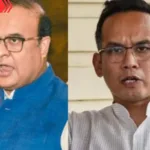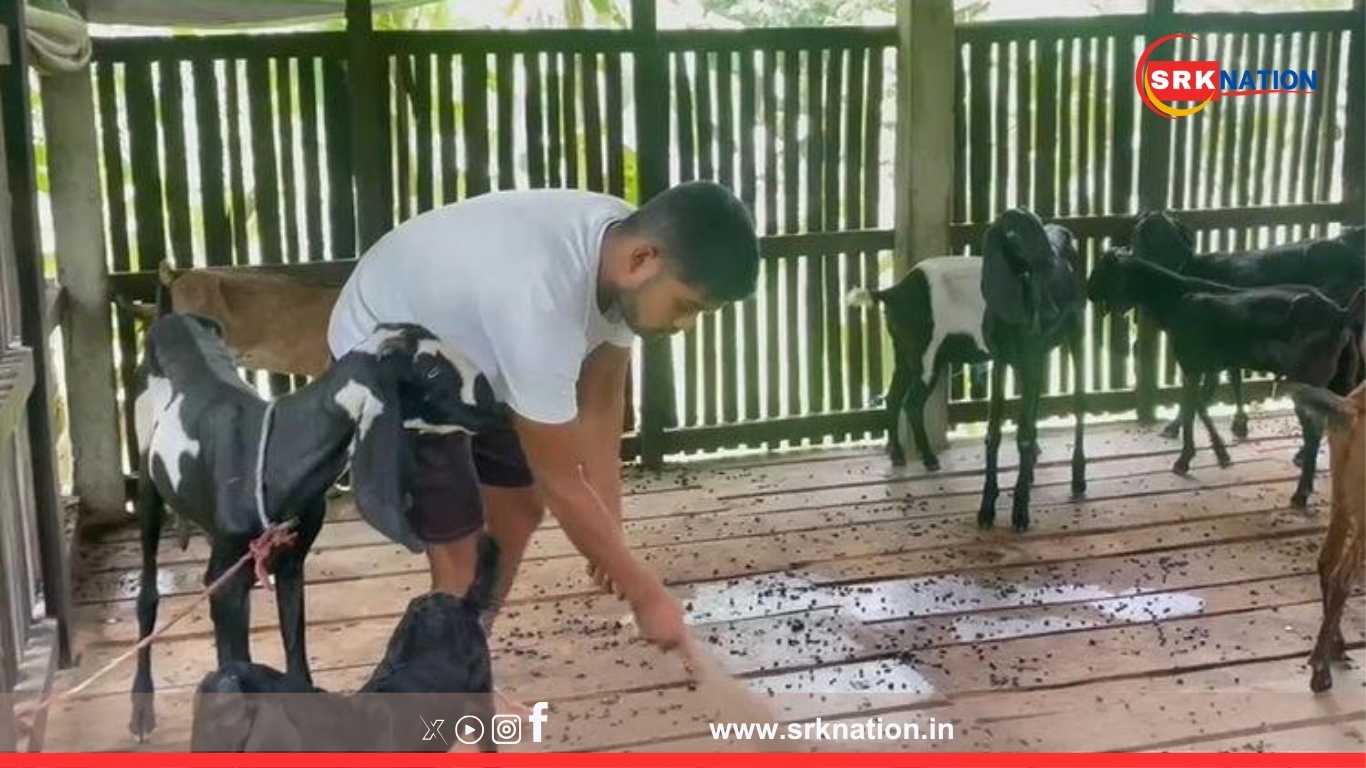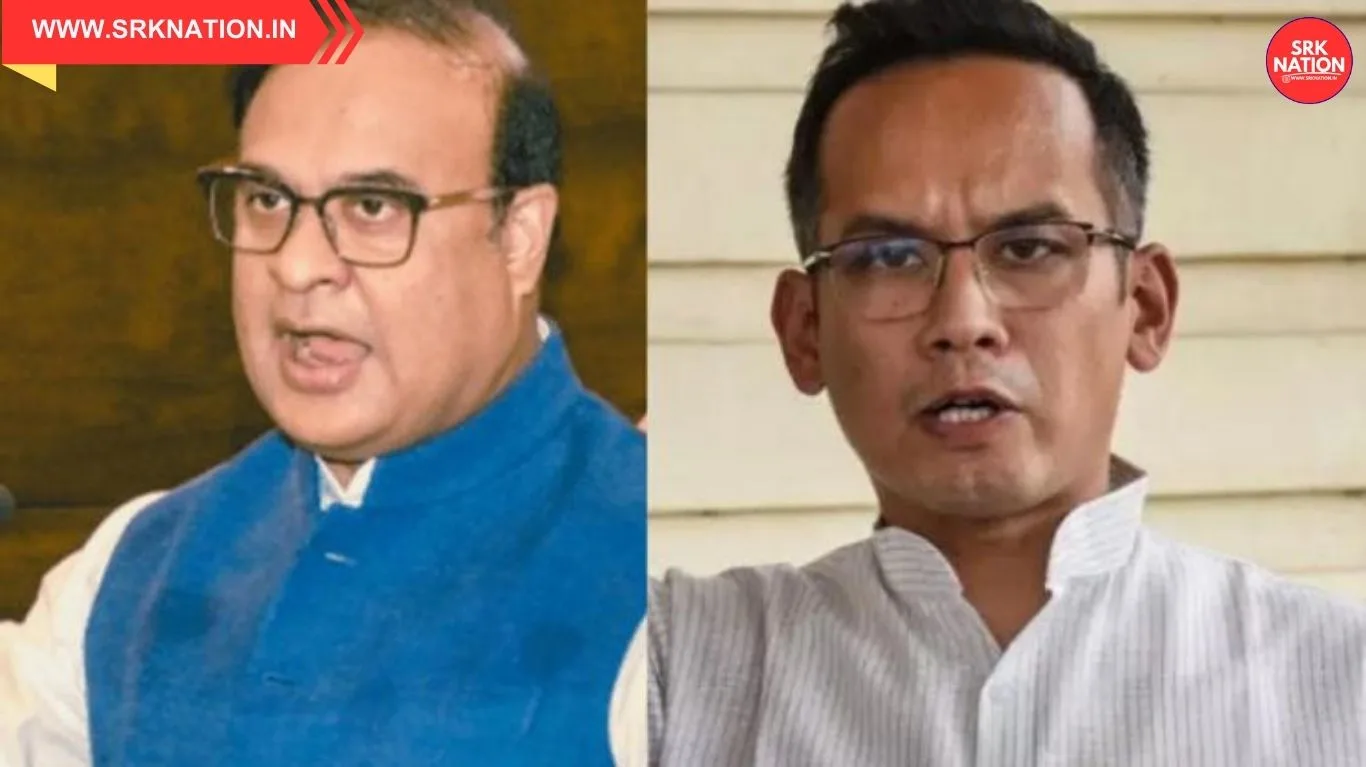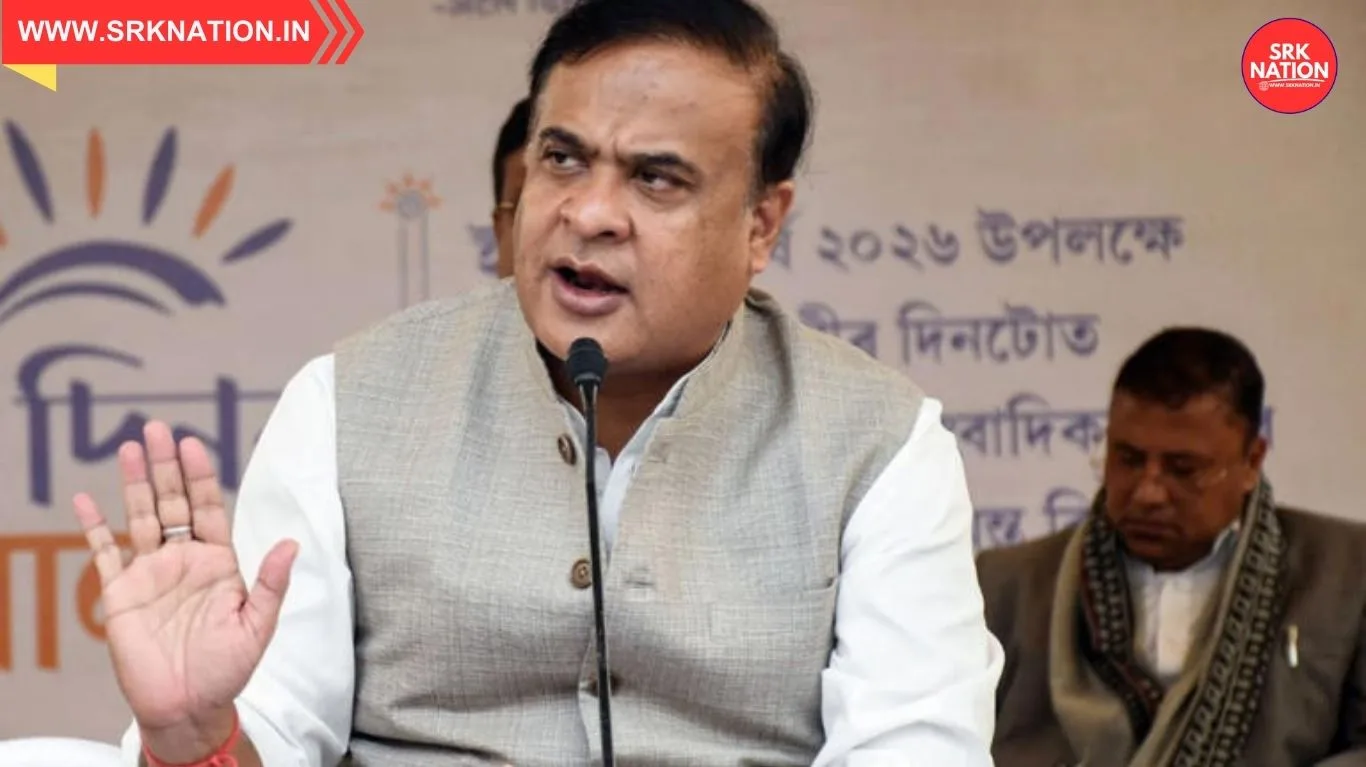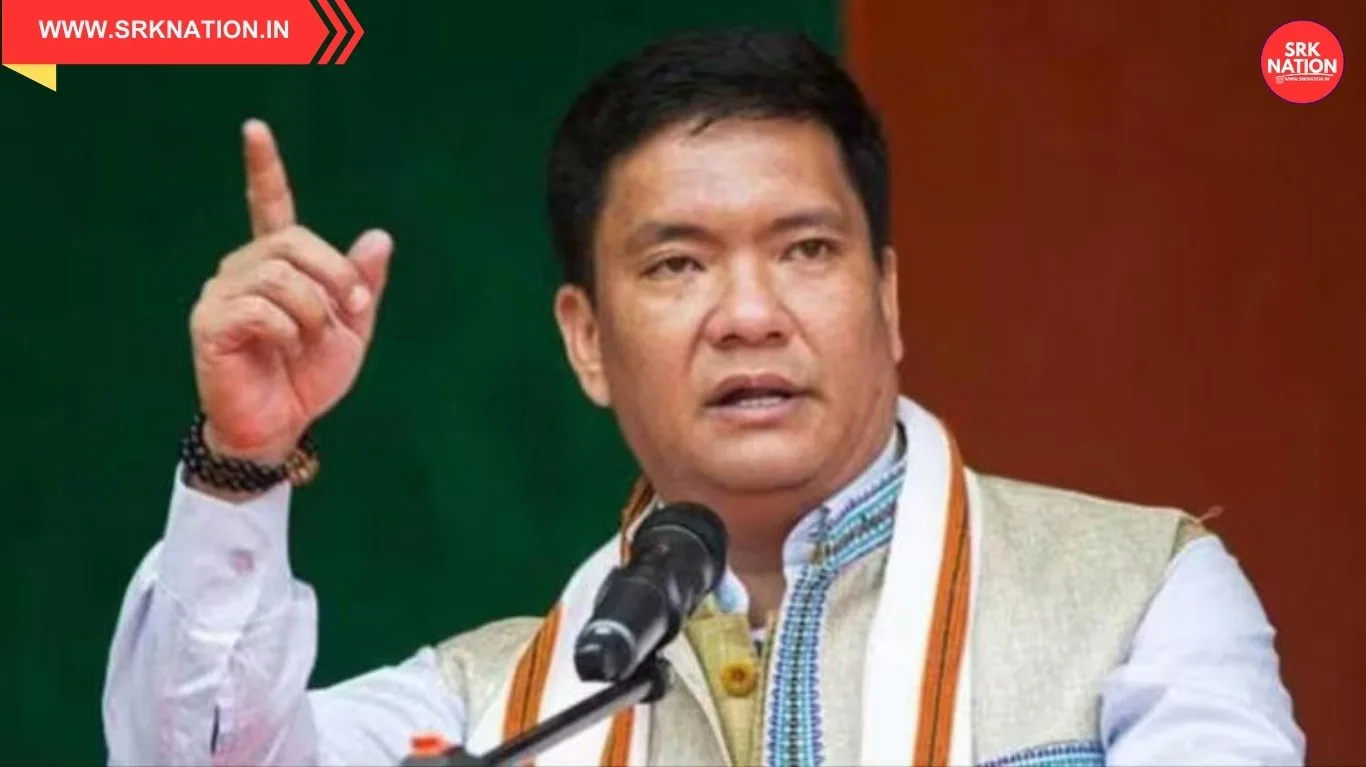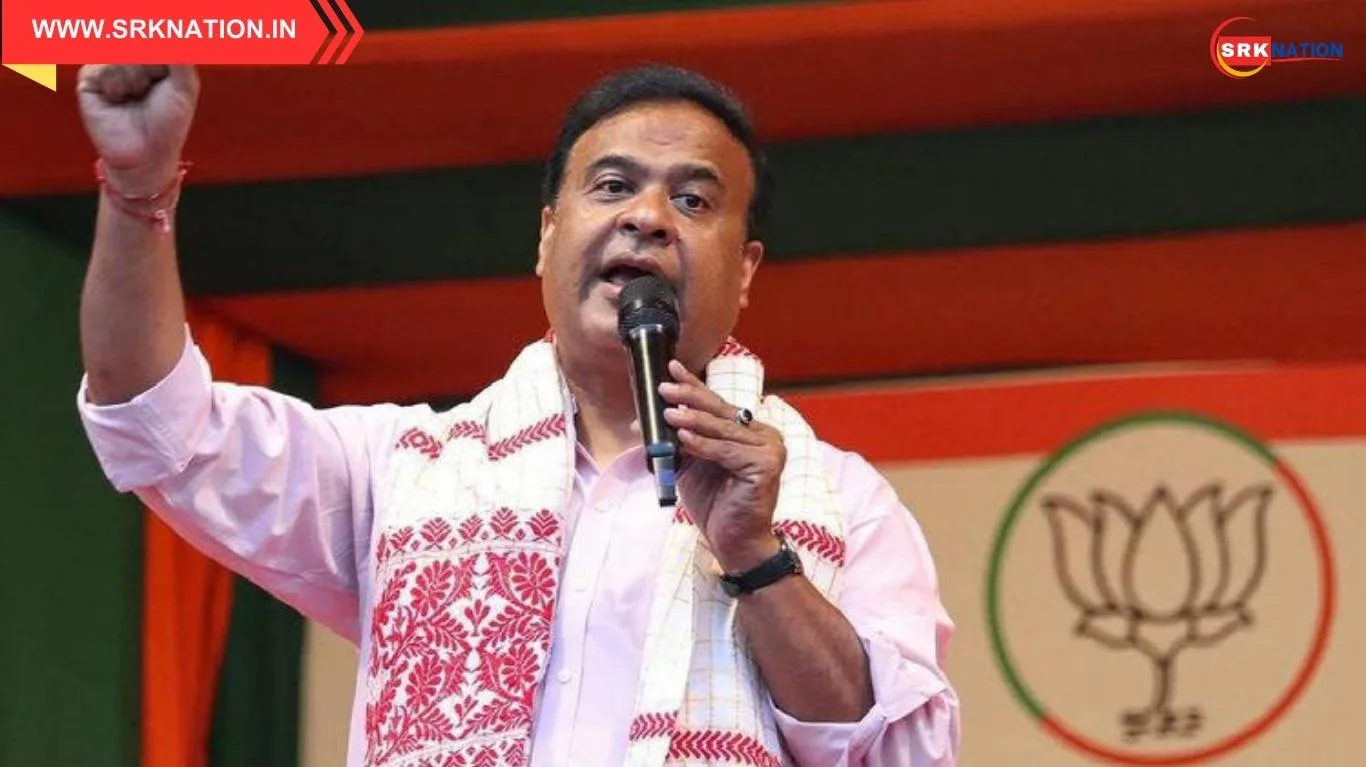In an inspiring tale from rural Assam, a young farmer has carved his path to success through dedication, organic farming methods, and innovative business practices. Twenty-five-year-old Rahul Boro, hailing from Baksa district in Bodoland Territorial Region (BTR), earns around Rs 4 lakh annually from his diversified farming business, motivating hundreds of rural youths to take up agriculture as a dignified and profitable profession.
From Unemployment To Farming Entrepreneur
After completing his higher secondary education in 2018, Rahul Boro faced what many rural youths in Assam experience – lack of stable jobs, skill development opportunities, and rising family responsibilities. Initially, he worked as a daily wage labourer in construction sites to support his parents and younger siblings. However, his life changed when he attended a two-day farmers’ training programme organised by the Krishi Vigyan Kendra (KVK), Baksa, where he learned about integrated farming systems, organic vegetable cultivation, and local market linkages.
Starting Small: His First Steps
In an interview with a regional agriculture portal, Rahul shared:
“I borrowed Rs 15,000 from my mother’s self-help group to buy seeds and pipes for irrigation. I started by cultivating ladyfinger (bhindi), brinjal, and green chillies in 0.5 bigha land near my house.”
His produce quality, freshness, and direct selling approach earned good prices in the village market. Within months, he reinvested his profits to lease additional land for cultivation.
Key Elements Of His Farming Success
Rahul’s farming business thrives on a combination of traditional knowledge and modern techniques:
- Crop Diversification: He cultivates seasonal vegetables like bhindi, cabbage, cauliflower, tomato, and leafy greens to ensure year-round income.
- Organic Methods: Using cow dung manure, vermicompost, and neem extract pesticides to maintain soil health and produce chemical-free vegetables.
- Direct Market Linkage: He sells vegetables directly at the Barama and Nalbari markets, eliminating middlemen, thus increasing profits.
- Low-Cost Drip Irrigation: Using plastic drums, pipes, and gravity-based drip systems to optimise water use during dry months.
- Fish Farming Integration: Rahul has a small pond where he cultivates rohu and catla fish, earning additional seasonal income of Rs 30,000-50,000 annually.
Earnings Breakdown: His Annual Income Graph
| Source | Annual Earnings (Rs) |
|---|---|
| Vegetable cultivation | 2,80,000 |
| Fish farming | 40,000 |
| Selling organic compost | 20,000 |
| Seasonal nursery (saplings) | 30,000 |
| Small livestock (ducks/chickens) | 30,000 |
| Total | 4,00,000 |
(Source: Rahul Boro’s self-reported income data verified by KVK Baksa)
Graphical View: Rahul Boro’s Monthly Income From Farming
Jan: ₹30,000
Feb: ₹25,000
Mar: ₹35,000
Apr: ₹30,000
May: ₹40,000
Jun: ₹35,000
Jul: ₹25,000
Aug: ₹30,000
Sep: ₹35,000
Oct: ₹40,000
Nov: ₹35,000
Dec: ₹40,000
(Based on seasonal crop cycles and fish harvest)
His Impact On Rural Youth
Rahul’s success has motivated over 30 youths in his village to take up vegetable cultivation and fish farming on leased lands. The local KVK has collaborated with him to host practical demonstration sessions for farmers, SHGs, and rural entrepreneurs.
Challenges Faced In His Journey
Despite his achievements, Rahul continues to face systemic challenges:
- Lack of cold storage: Perishable produce often gets wasted if unsold during peak harvest days.
- Limited transport: He hires shared vehicles to transport vegetables to markets, increasing costs.
- Climate impact: Erratic rainfall and long dry spells affect vegetable yields and pond water levels.
- Market fluctuations: Sudden price drops during peak seasons reduce profitability.
Support From Government Schemes
Rahul has utilised benefits from:
- PM-KISAN scheme: Rs 6,000 annual income support
- Assam Agribusiness & Rural Transformation Project (APART): Training on market linkages
- Krishi Vigyan Kendra Baksa: Regular technical guidance and organic certification assistance
- State Fisheries Department: Subsidy on fish seed and feed inputs
However, he feels lack of adequate institutional credit remains a bottleneck for scaling operations to a commercial farm level.
Expert View: The Importance Of Youth In Farming
Dr. Mrinal Das, Agriculture Economist, Assam Agricultural University, says:
“Rahul’s example shows how rural youth can transform the agriculture sector. With better access to markets, processing units, and digital marketing training, youths like him can become agri-entrepreneurs rather than job seekers.”
Future Plans: Rahul’s Vision
In the next five years, Rahul aims to:
- Expand his vegetable cultivation to 5 bighas under organic certification.
- Set up a fish hatchery unit to supply fingerlings to nearby villages.
- Install a small solar-powered cold storage unit to reduce post-harvest losses.
- Launch a WhatsApp-based direct marketing group for fresh vegetable home delivery in Barama and Nalbari towns.
Lessons From Rahul Boro’s Success Story
- Start small, reinvest profits: Sustainable growth over sudden expansion.
- Learn and innovate: Continuous skill training enhances productivity.
- Use local market intelligence: Direct selling yields higher profits.
- Diversify income sources: Combining vegetables, fish, and livestock ensures steady earnings.
- Community involvement: Inspire others to build a resilient rural economy.
Inspiring Quotes From Rahul
“People say farming is a poor man’s job. I say, if done properly, farming makes you independent, earns you respect, and feeds the society.”
“I want every educated youth in my village to return to agriculture with dignity.”
Government Focus On Agri-Entrepreneurship In Assam
The Assam Government has initiated several programmes to encourage youth in farming:
- Assam Agripreneurship Development Scheme: Grants and skill training for farm-based enterprises.
- Mukhyamantri Atmanirbhar Asom Abhiyan: Financial assistance to rural entrepreneurs.
- APART: Linking farmers to national markets with better post-harvest facilities.
Officials from the Agriculture Department believe Rahul’s model can be replicated across districts with customised training and market support.
Conclusion
Rahul Boro’s journey from a daily wage labourer to a successful farming entrepreneur earning Rs 4 lakh annually exemplifies the transformative power of agriculture when combined with innovation, resilience, and market understanding. As India focuses on doubling farmers’ incomes and rural youth employment, stories like Rahul’s are beacons of hope, redefining farming as a dignified, profitable, and impactful career choice.
Disclaimer: This article is based on direct interviews with Rahul Boro, Krishi Vigyan Kendra Baksa data, and local market reports as of June 2025. Readers are advised to verify scheme details with respective departments before application.

